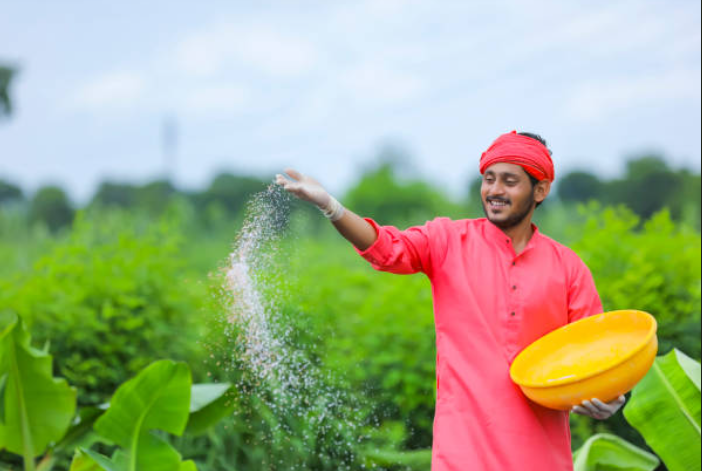
Exhibition time: 17-19 March, 2026 Shanghai, China
 中文
中文

Exhibition time: 17-19 March, 2026 Shanghai, China
 中文
中文

AgriBusiness Global recently caught up with Soumendu Ghosh, Commercial Director-India for Acadian Plant Health to talk about India’s emerging biostimulants market. With changes in regulations giving more validity to products on the market, Ghosh talked about how he sees changes in adoption, government support, and use in specialty crops in India.
ABG: What is the current state of the biostimulants market in India?
Soumendu Ghosh: Indian agriculture, with vast available acreages of a variety of crops throughout the year, provides enormous growth opportunities for quality biostimulants by sustainably improving crop productivity, soil health, and farmers’income.
India is an emerging market for biostimulants and is consistently growing at CAGR of 13.5 %, currently valued at USD $320 million, which is expected to cross USD $500 million by 2030 (Source: Industry Estimate).
The seaweed extract-based biostimulant market is valued at USD $83 million and is growing faster than other categories of biostimulants. Fruits and vegetables contribute less than 50% of the India biostimulant markets.
Farmers’ preferences are growing for quality biostimulants due to increasing awareness, higher emphasis on protecting yield, food quality and to defend against the adverse impacts of abiotic stresses (climate change), and improve deteriorating soil health. Increasing investment and strategic initiatives by crop protection and fertilizer companies are entering into this segment which augurs well for the growth of biostimulants in India. India is an emerging market of biostimulants and provides a unique opportunity for continued growth on a sustainable basis.
ABG: There have been new regulations that passed in 2021 putting biostimulants under fertilizers, helping to expedite registrations. Has Acadian seen the benefit of this or more competition enter this market?
SG: Fertilizer (Inorganic, Organic or Mixed) (Control) Order, 1985 (FCO 1985) includes biostimulant under Schedule VI. This is a positive and encouraging step undertaken by the Government of India. This regulation to standardize biostimulants through registration requirements ensures the quality and consistency of biostimulants in the market. Farmers now have access to good quality products and genuine biostimulants. This may result in consolidation of the industry as many fly-by-night operators may vacate the market and create a demand-supply gap which is beneficial for Research-driven organizations like Acadian Plant Health.
ABG: What kind of adoption is happening with growers? There was a lot of inconsistency in efficacy for biostimulants in India. Has it been hard to win over growers and retailers?
SG: Increasing awareness among farmers on the importance of good quality biostimulants against the adverse impacts of crop chemicals and residues, increasing cost of production, climate change (abiotic stresses), and deteriorating soil health continues to drive the demand for sustainable technologies in agriculture. Biostimulants help improve nutrient use efficiency, tolerate abiotic stresses like heat and cold, and improve quality attributes like appearance and shelf life. The biostimulant market is growing rapidly, and its acceptance and adoption is steadily increasing in India and more importantly in horticultural crop segments.
ABG: With the government pushing sustainability efforts, are plant health companies able to get inroads in this market with support from the Government of India?
SG: The Indian Government is emphasizing and encouraging organic farming and sustainable agriculture where biostimulants can play a key role. These initiatives provide the required impetus for the development of the biostimulant industry in India. The new fertilizer laws on biostimulants may result in streamlining the industry which, so far, is highly unorganized and dominated by small local players. Currently, obtaining the selling permission of biostimulants from each state is a cumbersome and time-consuming process. Ideally, it would be one nation and one permit.
ABG: What crops are more likely to use biostimulants in India?
SG: Horticultural crops are most likely to derive the growth of crop biostimulants in India as there are differential produce prices based on the quality of fruits and vegetables. The exports of horticultural crops from India are also increasing and farmers are getting better returns from exports.
Cereals, particularly rice, is driving the demand for granular biostimulants, and India is a big market for granular biostimulants for their ease of application (broadcasting) along with other synthetic fertilizers.
ABG: What future plans does Acadian have for this market?
SG: Acadian Plant Health is working on different product offerings that solve problems for growers. We intend to transform the industry with new formulations that focus on singular agricultural problems and fix them. Only by doing this can we truly extract the full potential of such powerful biological material to solve some of agriculture’s major problems.
Climate change is the biggest challenge agriculture is facing today with increased frequency and magnitude of extreme events like heat waves, drought, and floods affecting the sustainability of agriculture, weakening soil and plant health as well as food security of billions of people around the world.
The increasing population and the consequent rise in demand for quality and safer food will further exacerbate the need for sustainable farming solutions like biostimulants and seaweed extracts, that can help improve the health of the soil and the crop plants.
Integration of seaweed biostimulants into conventional fertilizers and crop protection production systems is now becoming a necessity for agriculture, combining productivity and sustainability.
Source:www.agribusinessglobal.com